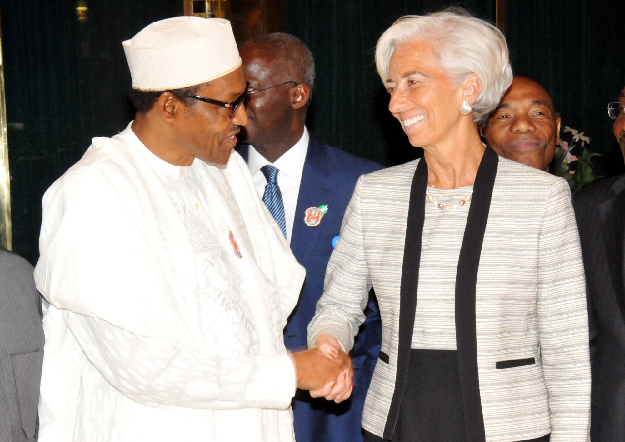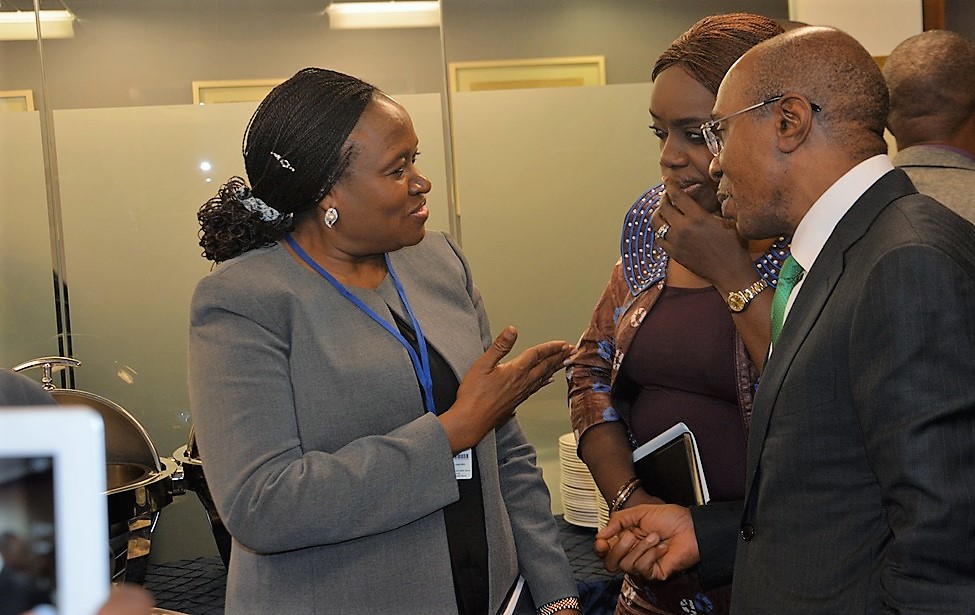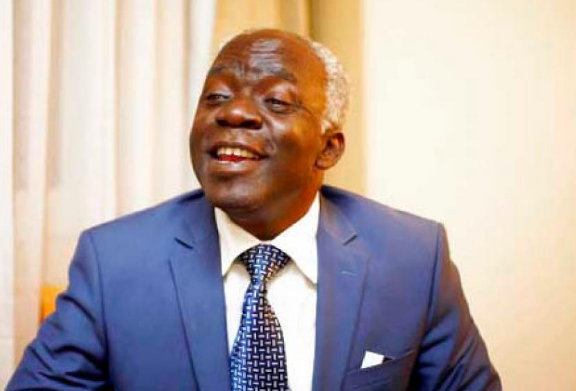The International Monetary Fund (IMF) says the President Muhammadu Buhari led government needs stronger policies in order to deliver on the objectives set by its Economic Recovery and Growth Plan (ERGP).
The IMF, which just concluded its Article IV consultation with Nigeria, said Buhari’s recovery plan was a welcomed development for Nigeria, but stated the need to raise taxes, and eliminate subsidies.
“Executive Directors recognized that the Nigerian economy has been negatively impacted by low oil prices and production,” IMF said in a statement.
“Directors commended the efforts already made by the authorities to reduce vulnerabilities and enhance resilience, including by increasing fuel prices, raising the monetary policy rate, and allowing the exchange rate to depreciate.
Advertisement
“However, in light of the persisting internal and external challenges, they emphasized that stronger macroeconomic policies are urgently needed to rebuild confidence and foster an economic recovery.”
“Directors welcomed the authorities’ Economic Recovery and Growth Plan (ERGP), which focuses on economic diversification driven by the private sector, and government initiatives to strengthen infrastructure—including the recently adopted power sector recovery plan. However, they underlined that without stronger policies these objectives may not be achieved.”
Highlighting what Buhari’s government must do to hit recovery targets, IMF taxes should be raised, subsidies should be eliminated, and leakages in the system should be blocked.
Advertisement
“Directors generally emphasized the need for a front-loaded, revenue-based fiscal consolidation starting in 2017, to reduce the federal government interest payments-to-revenue ratio to sustainable levels.
“They underscored that priority should be given to increasing non-oil revenue, including through raising VAT and excise rates, strengthening compliance, and closing loopholes and exemptions.
“Administering an independent fuel price-setting mechanism to eliminate fuel subsidies, strengthening public financial management, and developing a well-targeted social safety net would also support the adjustment. Directors stressed the need to contain the fiscal deficit of state and local governments, including through improved transparency and monitoring.
IMF COMMENDS CBN ON NAIRA
The IMF also commended the Central Bank of Nigeria (CBN) for recent foreign exchange policy actions.
Advertisement
“Directors underscored that external adjustment is necessary to protect foreign currency buffers and reduce vulnerabilities. They commended the recent easing of some exchange restrictions and urged the authorities to remove the remaining restrictions and multiple currency practices, thus unifying the foreign exchange market and helping regain investor confidence.
“Directors emphasized that these policies should be supported by tighter monetary policy and fiscal consolidation to anchor inflation expectations and to limit the risk of exchange rate overshooting, as well as structural reforms to improve competitiveness.
“Directors welcomed the steps to strengthen banking sector resilience through stronger prudential requirements. With asset quality declining, they recommended further intensifying bank monitoring, enhancing contingency planning, and strengthening resolution frameworks. Directors encouraged quickly increasing the capital of undercapitalized banks and putting a time limit on regulatory forbearance.
“Directors emphasized that ambitious structural reforms are key to achieving a competitive, investment-driven economy that is less dependent on oil. Priority should be given to improving infrastructure, enhancing the business environment, improving access to financing for small enterprises, and strengthening governance and anti-corruption efforts.
Advertisement
“Timely and effective implementation of these measures would promote sustainable and inclusive growth. Directors welcomed progress in improving the quality and availability of economic statistics and encouraged further efforts to compile subnational fiscal accounts.”
Advertisement
Add a comment







